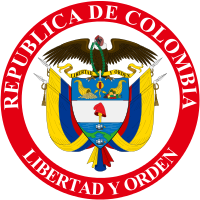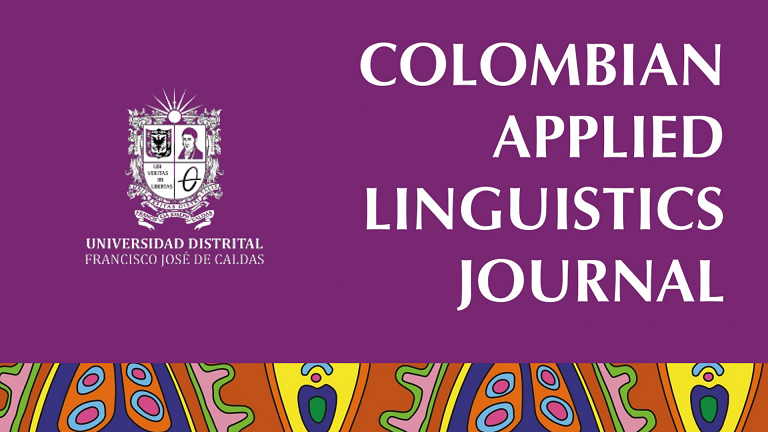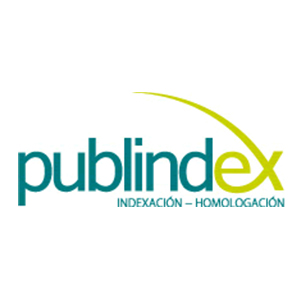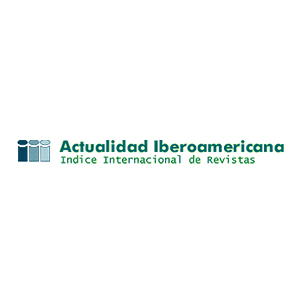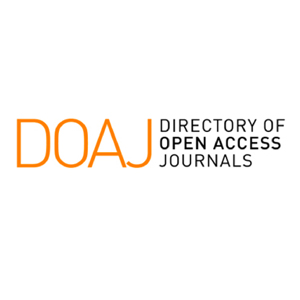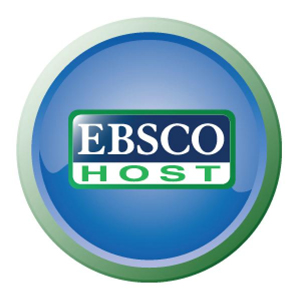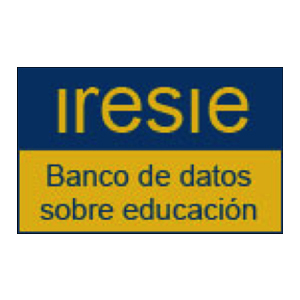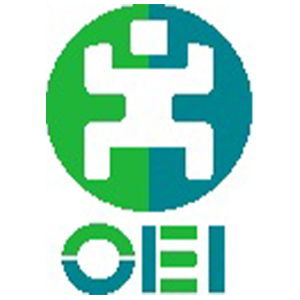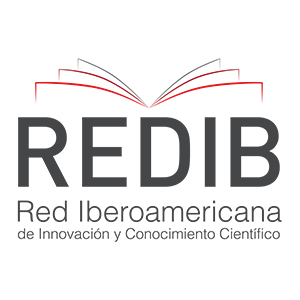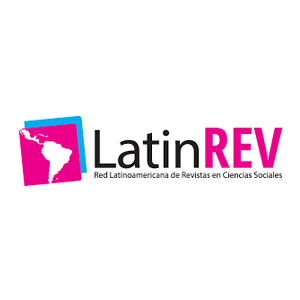TIC´S in the professional developments of EFL teachers: perceptions and challenges
TIC’s en el desarrollo profesional de profesores de inglés como lengua extranjera: percepciones y desafíos
Este artículo resume y analiza los resultados de un aspecto de la investigación centrada en la exploración de una propuesta de desarrollo profesional mediada por herramientas de las TIC para docentes de inglés. El proyecto tuvo como objetivo general analizar los alcances de la propuesta de formación en el desarrollo de la habilidad de escucha y de la competencia intercultural y en el desarrollo profesional mismo de un grupo de dieciséis docentes de varios colegios públicos de Bogotá. Una parte del proyecto indagó por las percepciones de los docentes sobre la propuesta y sobre aspectos que pudieron influir en la implementación de la misma en sus prácticas pedagógicas cotidianas. Los datos se recopilaron a través de encuestas, entrevistas y logs que revelaron que los docentes, aunque valoraron la propuesta como significativa y útil, enfrentan diversos tipos de dificultades y tensiones en su aplicación.
Desarrollo Profesional, Docentes de Inglés como Lengua Extranjera, Tecnologías de la Información y la Comunicación (TIC), Percepciones (es)
Adria, M. y Rose, T. (2004). Technology, preprocessing, and resistance -A comparative case study of intensive classroom teaching. Journal of Education for Business, 80(1), 53-60.
Arzaluz, S. (2005). La utilización del estudio de caso en el análisis local. Consultado en: http://lanic.utexas.edu/project/etext/colson/32/4araluz.pdf.
Becker, H. (2000). The “exemplary teacher” paper—how it arose and how it changed its author’s research program. Contemporary Issues in Technology and Teacher Education, [Online serial], 1 (2). Available: http://www.citejournal.org/vol1/iss2/seminal/article2.htm
Caballero, P., Prada, M. y Vera, E. (2007). Políticas y Prácticas Pedagógicas: Las TIC en Educación.
Franklin, C. (2005). Factors that influence elementary teachers’ use of computers. American Educational Research Association. Annual Conference: 2005.
Fogarty, R. (1994). How to Teach for Metacognitive Reflection. Hawler Brownlow Education.
Fox, A. (2008). Using Podcasts in the EFL Classroom. TESL-EJ 11.4, March, Fox 6.
Gray, C., Pilkington, R., Hagger-Vaughan, L. y Tomkins, S. (2007). Integrating ICT into classroom practice in modern language foreign teaching in England: Making the room for teachers’ voices. European Journal of Teacher Education, 30, 4, 407-429.
Hudson, B. (2007). Comparing different traditions of teaching and learning: What can we learn about teaching and learning? European Educational Research Journal, 6(2), 135-146.
Jamieson-Proctor, R., Burnett, P., Finger, G. y Watson, G. (2006). ICT integration and teachers’ confidence in using ICT for teaching and learning in Queensland state schools. Australasian Journal of Educational Technology, 22(4), 511-530. http://www.ascilite.org.au/ajet/ajet22/jamieson-proctor.html
Li, Q. (2007). Student and teacher views about technologies: A tale of two cities? Journal of Research on Technology in Education, 39(4), 377-397.
Loveless, A. (2007). Preparing to teach with ICT: Subject knowledge, Didaktik and improvisation. The Curriculum Journal, 18(4), 509-522.
Majó, J. y Marqués, P. (2002). La Revolución Educativa en la Era Internet. Barcelona: Cisspraxis, S.A
Marshall. K. & Rossman G. (1999). Designing Qualitative Research. California: Sage Publications.
McCrory, R. (2004). A framework for understanding teaching with the internet. American Educational Research Journal, 41(2), 447–488
MEN. Programa Nacional de Nuevas Tecnologías. Extraído dehttp://www.colombiaaprende.edu.co/html/home/1592/article-102549.html
Merriam, S. (1998). Case Study Research. USA: Library of Congress.
Oxford, R. (1990). Language Learning Strategies: What Every Teacher Should Know. Heinle & Heinle Publishers.
Phelps, R., Graham, A. y Kerr, B. (2004). Teachers and ICT: Exploring a metacognitive approach to professional development. Australasian Journal of Educational Technology, 20(1), 49-68. Downloaded on April 1, 2009 from http://www.ascilite.org.au/ajet/ajet20/phelps.html
Pineda, C. (2002). Knowledge base for EFL/ESL educators: What does it mean? Profile, Issues in Teachers’ Professional Development, 3, 9-15.
Robertson, H. (2003). Toward a theory of negativity: Teacher education and information and communications Technology. Journal of Teacher Education 2003; 54 (4); 280-
Schibeci, R., MacCallum, J., Cumming-Potvin, W., Durrant, C., Kissane, B. y Miller, E. (2008). Teachers’ journeys towards critical use of ICT. Learning Media and Technology, 33 (4), 313-327.
Schulman, L. (1987). Knowledge and teaching: Foundations of the new reform. Harvard Educational Review, 57(1), 1-22.
Tytler, R., Syinington, D., Malcolm, C. y Kirkwood, V. (2009). Assuming responsibility: Teachers taking charge of their professional development. Teaching Science, 55(2), 9-15.
UNESCO (2009). Conferencia Mundial de Educación Superior 2009: “La Nueva Dinámica de la Educación Superior y la búsqueda del cambio social y el Desarrollo”. París.
Vera, E. y Arias, L. (2008). Desarrollo de estrategias en el aprendizaje de inglés mediante un juego interactivo: A Journey to Britannia. Folios. Segunda Época (No. 28). Universidad Pedagógica Nacional. Segundo semestre.
Vera, E., Olaya, A. y Pérez, D. (2011) Hacia una perspectiva de desarrollo profesional mediado por TIC para docentes de inglés. Bogotá: Universidad Pedagógica Nacional. .
Webb, M. (2005). Affordances of ICT in science learning: Implications for an integrated pedagogy. International Journal of Science Education, 27(6), 705-735.
Webb, M., y Cox, M. (2004). A review of pedagogy related to Information and Communications Technology. Technology, Pedagogy and Education 13(3), 235–286.
Wolcott, L. (2003). Dynamics of faculty participation in distance education: Motivations, incentives, and rewards. In M. Moore (Ed.), Handbook of Distance Education (pp. 549–565). Mahwah, NJ: Erlbaum.
APA
ACM
ACS
ABNT
Chicago
Harvard
IEEE
MLA
Turabian
Vancouver
Descargar cita
Citaciones

Métricas PlumX
Visitas
Descargas
Zulma Rocío Buitrago Escobar (M. A.)2
Clelia Pineda Báez (PhD)3
1Profesora del Departamento de Lenguas de la Universidad Pedagógica Nacional. larias@pedagogica.edu.co
2Profesora del Departamento de Lenguas de la Universidad Pedagógica Nacional. zbuitrago@pedagogica.edu.co
3Profesora de la Universidad de la Sabana. clelia.pineda@unisabana.edu.co
Artículo recibido el 30 de abril de 2010 y aprobado el 28 de marzo de 2011
Abstract
This article summarizes and analyzes the findings of one aspect of a research project that explored a proposal mediated by ICT, for the professional development of a group of teachers of English. The general objective of the project was to analyze the effect of the proposal on the development of the listening skills, Intercultural Competence, and professional development itself of a group of sixteen English teachers from several public schools in Bogotá. One part of the study focused on the teachers' perceptions of the proposal. The other one deals with the aspects that could possibly have an influence on the implementation of the proposal on the daily teaching practice of the participants. The data were gathered through surveys, interviews, and logs, which evidenced that even though teachers value the proposal for its meaningfulness and usefulness, they face various kinds of difficulties and tension in its application.
Keywords: Professional development, teachers of English as a foreign language, Information and Communication Technology, Perceptions.
Resumen
Este artículo resume y analiza los resultados de un aspecto de la investigación centrada en la exploración de una propuesta de desarrollo profesional mediada por herramientas de las TIC para docentes de inglés. El proyecto tuvo como objetivo general analizar los alcances de la propuesta de formación en el desarrollo de la habilidad de escucha y de la competencia intercultural y en el desarrollo profesional mismo de un grupo de dieciséis docentes de varios colegios públicos de Bogotá. Una parte del proyecto indagó por las percepciones de los docentes sobre la propuesta y sobre aspectos que pudieron influir en la implementación de la misma en sus prácticas pedagógicas cotidianas. Los datos se recopilaron a través de encuestas, entrevistas y logs que revelaron que los docentes, aunque valoraron la propuesta como significativa y útil, enfrentan diversos tipos de dificultades y tensiones en su aplicación.
Palabras clave: Desarrollo Profesional, Docentes de Inglés como Lengua Extranjera, Tecnologías de la Información y la Comunicación (TIC), Percepciones.
Background
This study originated in the increasing need for professional development programs among English language teachers of public schools of Bogotá and in the need to incorporate the use of ICT in such programs. Based on the demands of modern society, center around technology for social, cultural, political, economic, communication, and information purposes, the research team decided that a professional development program could benefit teachers in the acquisition of knowledge regarding ICT. The goal was to orient their pedagogical practices so that they could complement, enhance, and support their ideas and performance. The idea of the professional development program that linked ICT with the English as a Foreign Language Learning (EFL) originated in the recommendation of a study done in Colombia that detected a need to use ICT in preschool, primary and secondary schools in our education system (Caballero, Vera, and Prada, 2007).
Based on the research mentioned above, a group of teachers from Universidad Pedagógica Nacional in Bogotá designed and implemented a professional development program that aimed at improving the listening skills and the intercultural competence of a group of teachers from various public schools of Bogotá. To carry out this proposal, the members used various tools that included the software "A Journey to Britannia," designed and validated previously (Vera & Arias, 2008), several videos from the web, and podcasts, especially the ones designed, posted and uploaded by the same members of the group.
During this professional development program, the researchers supported the teachers who participated in the project in the design and creation of podcasts, the design of activities to improve their students' listening skills and intercultural competence, and the reflection and discussion of the methodological, cognitive, and metacognitive strategies applied in those resources and activities.
Description of the professional development program
• The software
As mentioned previously, the participants in this study used software that included training with seven learning strategies and that focused on listening skills and Intercultural Competence (IC). In addition, the software contained a game of roles that allowed teachers, who were placed in a different era, to carry out two missions in order to go back to the 21st Century. In this case, the British culture served as the context to present the game and emphasis was given not only to some formal aspects of the English language such as word formation and phonetics, but also to those components of context that could provide extra clues to aid comprehension of ideas expressed in oral discourse. The conversations recorded by native speakers, were related to the well-known legend of King Arthur. However, because of time constraints, participants were not able to actually get into this fantastic world and enjoy accomplishing the missions.
In regards to the training of learning strategies, they were taken from the extensive research done by Oxford (1990). Each of those strategies serves a special purpose and therefore, provides the teacher with very helpful tools to improve their listening comprehension skills. Let us now turn to a brief description of them.
Reasoning deductively: this strategy deals with phonetic aspects of the language such as stress and intonation which help to determine if the speaker is producing new or given information.
Language transfer: the focus of this strategy is on the semantic aspect of the language through instruction on both true and false cognates.
Semantic groups: this strategy is also related to semantics and it deals with the ability to relate words that belong to the same semantic family. It in turn helps to activate already learned vocabulary or acquire new one as well.
Key words: the aim of this strategy is to facilitate the learning of new vocabulary. This is done by relating the new word in the L2 to a word with a similar pronunciation in the L1, and then creating a mental image in which the two words interact somehow in a given situation.
Linguistic clues: this strategy facilitates learning of vocabulary by using prefixes or suffixes to understand word formation, and also through the use of synonyms and antonyms, the identifcation of the order of adjectives, and inference of ideas.
Getting the idea quickly: by using this strategy, learners can reflect upon the processes they go through when understanding general ideas. Some of these processes are: focusing on key words, identifying the kind of discourse, understanding ideas quickly without comprehending the whole text, identifying the speakers intention, etc.
Thought groups: this strategy is directly related to grammar and it focuses on the relationship that exists between different types of clauses, in order to improve comprehension.
The learning strategy training provided teachers with food for thought in terms of reflecting upon new and very important tools they can offer students in order to make their learning process more effective, enjoyable, dynamic, and interesting. Unfortunately, students do not always count on the most useful tools to explode their learning process to the fullest, so it is worthwhile to incorporate this important concept in the language classroom.
• Podcasts
According to Fox (2008), Podcasts originated as audio fles that were uploaded to the internet and that people downloaded onto a cell phone, mp3 player, or to a computer. They represent a valuable pedagogical tool in the feld of language teaching due to the authentic source of exposure to the target language they provide learners with, as opposed to text-based activities.
Since the focus of the present study was to provide teachers with some tools mediated by ICT, podcasts posed a very interesting, authentic, and handy resource to use in order to achieve the main objective. The first step was for some of the researchers to create their own podcasts about topics such as the Intercultural Competence. Tus, teachers had the chance to listen to them and discuss about their contents. The purpose of this activity was to provide teachers with an example that could illustrate the process to design a podcast so that they could emulate it to create their own. Unfortunately, this objective could not be fully achieved due to the fact that only a minority of the participants in the study actually did it. Nevertheless, teachers expressed their satisfaction about being introduced to this technological tool.
• Workshops and use of videos
As mentioned earlier, teachers were guided toward the exploration of some of the learning strategies proposed by Oxford (1990). They worked collaboratively most of the time and with the orientation of the teacher-researchers. The interaction that emerged in the meetings was significant as it helped teachers grasp the content of the sessions. Besides working on learning strategies and after receiving instruction on how to design podcasts, teachers were shown some videos taken from YouTube. Based on their comprehension of these visuals, they designed lesson plans to use them as additional sources in their English classes. Teachers who did not do this task were given some tips on how to incorporate the concept of Intercultural Competence in their classes and help student develop their listening skills as well.
The research question
Although the project examined different aspects of the implementation of the methodological proposal mediated by ICT and those aspects are reported elsewhere (Vera, Olaya & Pérez, 2010), an area of inquiry that was of particular interest to the researchers was the perceptions teachers had of the proposal and how they transposed the knowledge acquired about ICT to their pedagogical practices. Consequently, the following questions were formulated:
What are teachers' perceptions of the methodological proposal mediated by ICT in the development of their professional development?
How do they transpose (if they do) the knowledge acquired regarding the use and application of ICT in English as a foreign language learning?
The impact of this study lies on the fact that we could evidence the difficulties teachers of public institutions face when dealing with professional development programs and the factors that may facilitate their learning processes. Based on the results, we propose a teacher professional development program that integrates the use of cognitive and metacognitive skills, the use of ICT and the creation of communities of knowledge that share new methodological ideas.
Theoretical framework
Teachers embracing ICTs: key factors
Research on teachers' proneness to incorporate ICT in their teaching repertoire has revealed that both exemplary and non-exemplary practices depend on a multiplicity of factors that relate to teachers' perceptions, attitudes and beliefs about ICT (Wolcott, 2003 as cited by Adria and Rose 2004), the school culture, education policies (Gray et al., 2007) and the accessibility and involvement in ICT professional development courses (Schibeci et al., 2008). With respect to attitudes, perceptions and beliefs, a recurrent theme in the literature relates to teachers' fears that they may be displaced and even replaced by technology (Li, 2007). This fright has produced what the literature calls the 'over-sold, under-used phenomenon'; that is to say, a great investment in the purchase of computers that are not being used by teachers (Cuban, 2001 as cited by Li, 2007).
Adria and Rose (2004) indicate that teachers also feel unsecure about controlling teaching and learning practices when using technology and that even tenure and promotion practices will be uncertain. The authors indicate that educators who share this perspective view ICT as a threat to their professional identity and autonomy and therefore would become reluctant to incorporate them in their classrooms. Teachers' consternation centers on the idea that they will have "to abandon many conventional practices and relationships and perhaps find new ways to define themselves and what they do, and this is dificult" (p. 55).
Jamieson-Proctor, Burnett, Finger, & Watson (2006) add that teachers' predisposition to use ICT to align and transform the curriculum also relates to their degree of confdence. The authors emphasize the role of gender diferences and teachers' age. In their study, older educators and females were less confdent to employ ICT than young teachers and male educators. According to the authors, the findings have important implications due to the fact that a high percentage of the teacher population where the study was done is composed by females.
Becker (2000) highlights the importance of considering teachers' philosophies and their beliefs with respect to teaching and learning with computers, and emphasizes the need to study if students' academic attainment can be attributed to the use of computers by teachers. Similarly, Web and Cox's (2004) literature review suggests that teachers' values and beliefs about the impact of ICT on learning play an important role in the adoption of such technologies. This factor is also emphasized by Adria and Rose (2004) who believe that when teachers see conflicting views or slight evidence of improvements in learning due to technology, they tend to question the efcacy of such innovations. In this train of thought, Robertson (2003) supports the view that teachers should be encouraged to pose critical questions regarding the role of technology as they are usually uninformed and are denied opportunities to scrutinize "the motives, power, rewards, and sanctions associated with the unscrupulous marketing of information and communications technology (ICT)" (p. 280). In her view, it is not judicious to think that teachers oppose technology, but that they develop a feeling of insufciency when they lack the support to face the challenges posed by technological use in education.
Franklin's research (2005) indicated that teacher preparation and teachers' philosophies influenced computer use by elementary teachers and their students. The study pointed out that although recent graduates apparently used computers, it could not be interpreted as if they had developed computer pedagogical content knowledge and skills. The author stated that it is not sufficient for teachers to know how to operate a computer, but to design and implement learning opportunities maximized by technology: "simply knowing how to use computers for one's personal use is not synonymous with knowing how to teach with technology" (p. 27).
Orienting teachers in the enhancement of their practices by means of technology has been an education policy enforced in many countries. In fact, the World Conference of Higher Education organized by UNESCO in 2009 (UNESCO, 2009) recommended that nations strengthen the pedagogical knowledge of teachers with regard to ICT, encourage research on this area and improve the infrastructure required for the proper connectivity in education settings.
England, for example, is one country that has undergone a series of policies to transform learning and teaching practices. Gray et al., (2007) reviewed the government's strategies to help teachers employ ICT since 1980 until the present and concluded that despite efforts "there is a tension between compulsion and choice; between the demand and transformation of teaching and learning and the exhortation to teachers to determine for themselves when ICT can be best used to enhance their practice" (p. 409). Two key aspects are also emphasized by the authors. One suggests that time is a determinant factor in the development of pedagogical skills to dig into the myriad of possibilities technology offers. Schibeci et al. (2008) also highlight that change requires time and that the administrations of schools must support teachers for longer periods of time so that they develop enough confdence to master technological skills, select appropriate software and integrate ICT in the curriculum. The second factor that Gray et al., (2007) emphasize is called 'at need support'. It refers to attempting to include training opportunities that meet the particular needs and learning styles of teachers.
As Gray et al., (2007) and Robertson (2003) point out; there is a tendency in the discourse about teachers and ICT and particularly in teachers' professional development programs to position them as deficient or resistant. However, the authors caution the readers about the working and living conditions of teachers. The overwhelming number of tasks teachers have to confront at school may also be a factor that could undermine the implementation of ICT policies. Even considering teachers' willingness to use ICT, there are "the unrealistic demands on time" (Gray et al., 2008) which impede that teachers make the necessary arrangements to have periods they can use to prepare for the use of ICT. Roberts (1998 as cited by Gray et al., 2007) had already stated that "teachers will only try out what they are confident they can cope with" (p. 305).
Another aspect discussed in the literature about teachers and innovations, in this case the use of ICT, refers to the lack of trust on initiatives that are generally imposed from the outside and that usually ignore teachers' sense of self-agency. Teachers will tend to transform those areas identified by them.
- Perhaps what matters most is the individual teacher's 'feel' of how the changes which they are making are meeting their own personal priorities and needs; the technology becomes a tool in the ongoing organic development of the teachers' practice, rather than an instrument of imposed transformation (Gray et al., 2007, p. 425).
Similarly, collaborative work among teachers, peer-support and networking seem to influence the willingness of teacher to engage in the use of ICT. If the school culture fails to promote team work among teachers, solo enterprises will tend to vanish. On the contrary, contexts that involve teams of teachers who work together on commonly agreed tasks are more powerful in transforming education practices (Tytler, Syinington, Malcolm, & Kirkwood, 2009). This view is also shared by Schibeci et al., (2008) who add that in order to prepare teachers to use ICT, professional development programs require a vision of the teacher as an adult learner, and that these programs require extensive periods of time shaded by collaboration and reflection. The authors propose a framework to help teachers gain confidence and skills in the use of ICT. The framework is composed of four basic stages and was adapted on Kissane's (2003) proposal for the use of graphic calculators.
The first stage was called 'Where is the ON Button' and referred to teachers learning ICT technical skills and getting familiar with hardware and software. The data collected indicated that teachers in this stage experienced anxiety and uncertainty and feared that their students could be ahead of them. The second stage was called 'Black Mastery Line' and was centered on teachers and students and developing tasks using ICT to meet the demands of the current curriculum. Teachers felt less stressed and more comfortable with students working ahead of them. Tere were two interesting features in this stage. One was that teachers began to make informed uses of ICT as they assessed its contributions and prepared more open-ended tasks and second, that reflection processes took place, triggered specially by students' use of Internet.
The third stage was labeled 'Routine Teacher and Student Use' which focuses on the use of technology in the student learning process. Few teachers reached this stage and those who did developed critical skills that enabled them to judge the application of ICT to achieve the learning outcomes of their students. Finally, stage four, which was named 'What is in the Curriculum?' aimed at curriculum development and school transformation produced by ICT implementation. It was expected that "teaching would be characterised by individual teachers using technology to develop and challenge existing curriculum structures and school practices" (p. 320). However, time was a limitation so that teachers could reach this stage. In general, Schibeci et al., (2008) conclude that it is of paramount importance that teachers' professional development programs should allow them to make personalized choices, foster collaboration and reflection for extended periods of time.
Reflection should be placed at the center of any professional development program that intends to incorporate ICT in the classroom. Phelps, Graham and Kerr (2004) make a strong case for a metacognitive approach to teachers' professional development that accentuates the identifcation and articulation of goals selected and prioritized by the teachers themselves. Metacognitive understanding helps "individuals come to terms with the nature of technological change and their own abilities to confront this change. Of implicit importance here is a focus on effective learning strategies which empower learners to continue to learn computer skills throughout life" (p. 51). Metacognition implies 'self appraisal' which refers to individuals' reflections on their state and abilities which extend beyond the content of their knowledge to the process they follow and the timely and justifiable application of knowledge and strategies (Paris & Winograd, 1990 as cited by Phelps, Graham & Kerr, 2004). It also embraces 'self-management' or "the ability of the individual to plan and implement appropriate strategies and to monitor, adjust and 'trouble shoot' their performance" (Paris & Winograd, 1990, p. 18 as cited by Phelps, Graham and Kerr, 2004).
There is also an additional benefit of fostering metacognition in ICT professional development programs. Teachers have an opportunity to confront their own, their colleagues and their students' issues of concern. According to the authors, this facilitates the creation of networks and a culture of support which creates an environment that favors the transformations of schools. Majó and Marqués (2002) affirm that teachers must work together in the use of ICT and maintain an inquiring attitude to help them seek for pedagogical alternatives to optimize their everyday learning and teaching practices. Such alternatives imply the active participation of students to make the learning-teaching process more dynamic. According to these authors, the following are teachers' functions when applying ICT:
- Design materials that involve ICT
- Guide and orient students in the use of ICT
- Employ ICT in virtual tutoring sessions with students
- Use ICT to evaluate the learning processes of students and foster self-evaluation using those resources
- Foster a positive attitude among students to ICT use
It is worth noticing that the previously mentioned functions require the teacher to have developed what is known in the literature as pedagogical knowledge. The next section briefly specifies the professional knowledge teachers working with ICT should possess and refine.
Teachers' Pedagogical Knowledge and ICT
Schulmans (1987) seminal work on teachers' professional knowledge highlighted six categories: content knowledge, general pedagogical knowledge, pedagogical content knowledge, curriculum knowledge, knowledge of the learner and knowledge of educational goals and philosophy. The categories are enriched by teachers' insights and experiences, which in turn, assign the knowledge base of teachers a dynamic character (Pineda, 2002).
Pedagogical content knowledge is a distinctive feature in Schulman's model and one of paramount importance in ICT application. It refers to the ways teachers represent and communicate knowledge so that students can comprehend it. It "underpins a teacher's ability for pedagogical reasoning and action. The transformation of knowledge takes place when teachers actively grasp, probe and comprehend ideas in order to shape and tailor them in representations which are appropriate for learners" (Loveless, 2007, p. 510). Such representations, in the ICT field applied in education, imply high levels of complexity as they demand sound pedagogical reasoning from teachers (Webb and Cox, 2004).
Learning environments that include ICT offer affordances that require from teachers reflecting upon the what, how why of a content area as well as the what, how and why of the technologies they can use (Hudson, 2007). An affordance refers to opportunities and limitations in ICT based learning environments that involve interactions between hardware, software, different resources and humans, in this case teachers and students (Webb, 2005). In synthesis, affordances refer to the characteristics and uses of technology. McCrory (2004) clearly illustrates what they are with the following example:
- tracking changes is a feature of a word processor on a personal computer. Editing documents is a use probably conceived of by designers of word processors. Engaging in a writing process is an affordance of a word processor for teachers and students of writing: The technology provides a means to draf, edit, and revise; to keep track of the process; and to share documents (McCrory, 2004 pp. 451-452).
Webb (2005) states that the selection a sound pedagogical practices require that teachers comprehend the links between different ICT affordances and deep knowledge of subject matter content in of a discipline. "Pedagogical reasoning leads to: teachers producing lesson plans and schemes of work that incorporate affordances for learning; and teachers' behaviors during lessons that enable students to benefit from these affordances" (p. 727). For the foreign language teacher this means reflecting upon opportunities and constraints offered by ICT and devising representations of knowledge to facilitate the learning of a language.
The general panorama of teachers' ICT professional development in Colombia
Caballero, Prada, Vera and Ramírez (2007) synthesized the findings of several studies on ICT policies and practices in education, at the international and local levels. In connection to the tendencies of use ICT by Colombian teachers, the authors point out that there are efforts to promote the use of technology among teachers, and that those initiatives are moving beyond the mere use of the tools. They are fostering, in many cases, reflective and critical processes regarding the pedagogical role of technology. However, they also highlight that according to teachers, there are various aspects that influence the development of significant experiences in the classroom. It is not only necessary that schools have sufficient access to technology and that the school administration, parents and students support teachers' projects. It is also indispensable to center teachers' work with ICT on networks and teams that respond to the particular needs of the contexts they are immersed. The authors point out the lack to time for teachers to fully develop their ICT initiatives and interdisciplinary work.
The emphasis on teachers' appropriation of technological tools so that they can enrich their pedagogical practices is one of the pillars of the current policies of the national government of Colombia. Teachers' professional development program for the use of ICT proposed by the Ministry of Education (MEN, 2008) center around two main phases. One focuses on helping teachers become aware of their use, facing fears, acknowledging resistance and discovering obstacles so that they eventually include them in their practices. The other phase seeks a more professional appropriation of ICT so that teachers can transform curricular practices. The proposal of the MEN also emphasizes the crucial role that team work and networks could play in facilitating the appropriation of ICT among teachers. In a similar vein, Jaramillo, Ordoñez, Castellanos and Castañeda (2005) had already pointed out that a significant use of ICT in education contexts depend on institutional conditions that stimulate interdisciplinary work. But one important factor seems to play a determinant in the pedagogical use of ICT: teachers' beliefs and perceptions. Padilla and Páez (2008) still emphasize on the need to explore teachers' views in our context and on sensitizing them as a preliminary stage to transformation.
The work that is presented here focused on that particular need. It is the visions of teachers regarding ICT but shaded by a professional development program that intended to foster their use in EFL classroom settings.
The methodological route
The characteristics and purposes of this study match the principles of qualitative research applied to case study, with participatory observation, given the exploratory nature of the study. This type of research and design were selected based on what Merriam, (1988) afirms about what case study is: "description and exhaustive and holistic analysis of an individual, a phenomenon or a social unit," (p. 9), considering that our purpose is to study the development of listening comprehension skills through the use of ICT.
Following Robert Yin (as cited in Arzaluz, 2005), in the selection of case study as the method for a research study, the researcher must ask about why and how the events happen and not try to control any variable. Tat is to say, there must not be any kind of experiment. This is a method that allows direct observation and data collection in natural contexts. Stake (1994) distinguishes three case study types: Intrinsic, instrumental, and collective. The first one obeys to a simple interest because the researcher wants a better understanding of a particular case or situation; the second is caused by scientific interest because of the researcher's desire to provide insight into an issue or refinement of theory. Finally, the third type, collective case study, analyzes a number of case studies to extend the results to other situations. This research study relied on collective case study considering the researchers can study a number of cases in order to inquire into a phenomenon, population, or general condition.
Setting
This research study was carried out with sixteen English language teachers of various public schools of Bogotá: Instituto Pedagógico Nacional (I.P.N.), I.E.D. (Institución Educativa Distrital), Simón Rodríguez, I.E.D. Morisco, I.E.D. Francisco de Paula Santander, I.E.D. Alemania Solidaria, I.E.D. Almirante Padilla, and I.E.D. Saludcoop Norte. We decided to take public schools of Bogotá as our population considering the need public school teachers have for professional development, especially in relation to the knowledge and use of ICT to improve their students' learning processes and to improve teacher performance, regarding the challenges posed to educators in a world moved by technology.
At the beginning of the research study, we decided to select the schools based on three criteria: they should have good connectivity, they should have Pentium computers or higher, and they should also have a Language Resource Center (LRC). Although more than twenty schools were invited to participate in the Teacher Development Program designed by the research team, only seven schools accepted, even though their principals were told about the benefits their institutions, their teachers, and of course, their students would receive from the program. At the end of the selection, only two of the schools selected had a LRC, and three had good connectivity.
We also selected those schools from different social backgrounds and from different zones of Bogota: North, South, East, and West. Some schools, such as the Instituto Pedagógico Nacional have students from varied social backgrounds as demonstrated by the demographic information collected in the school that uses the system used nationwide to classify social status.
Although all the public schools of Bogotá are ruled by the Secretary of Education regarding the standards for the development of foreign language competencies, there is no uniformity in relationship to the number of hours per week schools must use to study English. It ranges from one or two per week in elementary schools and in secondary from two to five. Only two schools have an emphasis on English, although with just a few hours: Simón Rodríguez school includes some extra hours in ninth grade to prepare students for the standardized ICFES test, and students at Saludcoop Norte take five hours of English a week.
In the next section, dedicated to the participants, we will try to make a very brief description of the characterization of the teachers who volunteered to participate in this Teacher Development Project.
Participants
The subjects for this research study were 16 English language teachers of various public schools from different social backgrounds of Bogotá. At the beginning, 23 teachers accepted to participate in the project, but due to their heavy teaching and academic workload, the administrative work they had to comply with at their institutions and (due to) their personal situations, only sixteen of them remained and finished the program. Let us examine some of the features that characterized our sample:
All the participants were English language teachers, that is to say, they had a bachelor's in English language teaching. Two of them held a master's degree in Applied Linguistics to the teaching of English, and six were pursuing a post-graduate program in areas related to language teaching: ICT applied to education, foreign language teaching, education and e-learning, applied linguistics to English teaching, and English didactics with emphasis on autonomous environments.
Besides those studies, ten participants had taken shorter formal programs called specializations in programs such as Virtual Learning Design, Pedagogy, Teaching of Spanish as a Foreign Language, University Education, and Language Teaching for Basic Education. Additionally, thirteen teachers indicated that they had taken formal teacher development courses called in our country PFPD (Programas de Formación para Docentes) and diplomados (less formal courses that last less than 120 hours) sponsored by the local Secretary of Education and offered by different institutions that have academic recognition in the feld of education. We believe these studies provided the participants with tools to improve and to reflect on their performance as language teachers.
In relationship to their cultural background, we can say that just two teachers, out of the sixteen participants, had traveled to an English speaking country (The United States), according to the information they gave us, to improve their command of the English language.
Considering the number of courses the teachers had to teach the year this research project was carried out, the information is very varied: one teacher was in charge of three courses, another had four, five teachers had five courses each; two had six courses, one had seven, two had eight and one had nine courses. Other teachers did not give any information related to this issue. Besides being assigned regular courses to teach, some of them had to coordinate a project or the English teacher team or collaborate with other academic and administrative groups of teachers at their institutions. This and the regular meetings they were supposed to attend at their institutions were reasons, among others, for teachers not to be able to participate in the teacher development program as diligently as the research team wanted them to.
Instruments for data collection
To carry out this research study, we used four instruments for data collection: logs or academic diaries, an interview, a survey and artifacts designed by the participants as activities to develop listening skills. According to Robin Fogarty (1994), logs are diaries that focus on the students' work in the classroom and not on other aspects of their personal lives, contrary to what happens with journals.
Logs are useful instruments to collect qualitative data due to the fact that they allow participants to synthesize their thoughts, to keep a record of their experiences in order to relate them to their learning processes; to reflect, not only on the achievement of a specific goal, but also to exercise their higher thinking skills. Consequently, they also foster metacognitive processes, given the fact that the students can keep a record of their thinking processes and their decision making.
Interviews are considered to be direct dialogues with the participants. As data collection instruments, interviews are useful to get information related to research, to teaching, and to obtain feedback on a specific issue. We selected interviews as a second instrument, because we wanted to obtain specific information, and according to what Patton (1990, as cited in Merriam 1998) says about interviews, we wanted to find out what is "in and on someone else's mind" (p. 71).
Surveys are used to examine what people think about a specific topic at a particular time. We used a survey that consisted of questions that dug into their perceptions of the proposal. Finally, the activities designed by the participants were analyzed as evidence to determine the aspects of the teacher development program that had been applied by them in these didactic materials. Since only a few teachers designed their podcasts, which was one of the main goals of this project, we decided to analyze the lesson plans and the activities that they wrote to show how they would improve their students' Intercultural Competence and their listening skills. The analysis of these materials is considered as document analysis. According to Marshall and Rossman (1999), written and oral documents as communication means, (books, novels, e-mails, etc.) are unobtrusive methods for data collection that show values and beliefs of people in specific contexts.
The data contained in each one of the instruments were read several times. Recurrent themes were identified, grouped and reorganized into major categories that responded to the research questions. The use of the various instruments allowed for methodological triangulation in order to validate the analysis. The following section presents the main findings.
Findings
The first category responds to the perception of teachers regarding the methodological proposal for their professional development. They emphasized on the role of ICT and their significance. Each category is illustrated with samples taken from the different instruments. The labels for each instrument appear in parenthesis. Tere is also a translation, done by the researchers, of teachers' voices.
Becoming aware of the usefulness of ICT
All the teachers that composed the sample of this project recognized that using ICT in the classroom was necessary due to several reasons, among which, the usefulness in real contexts to learn the language and make learning more meaningful were emphasized:
- "Ponen al estudiante en el contexto de su realidad o en el que se necesita trabajar en clase." (S. GG)4
- ICTs put the student in his real context or in a context appropriate to work in class.5
- "Porque permiten que el estudiante consulte diversa información, al igual que los docentes, además el proceso de enseñanza-aprendizaje se hace más significativo." (S. MFM)
- They allow the student and the teacher to Access to a variety of information and additionally, the teaching and learning processes become more meaningful.
The teachers also mentioned that the proposal allowed them to observe the multiple possibilities ICT have to interact and communicate with others, besides improving students' knowledge of the language.
- "Abre posibilidades de comunicación, interacción, comprensión y permiten avanzar en procesos cognitivos y comunicativos en L. E ." (S. GG)
- They provide opportunities to communicate, interact, understand, and allow progressing in cognitive processes and communication in the foreign language.
- "Son herramientas muy actuales, muy interesantes y llamativas para los estudiantes y para el docente; es un elemento muy efectivo para el aprendizaje." (S. IF)
- They are updated, interesting and attractive tools for students and for the teacher. It is an effective learning tool.
Teachers recognized that ICT are valuable because they present possibilities for designing a variety of alternative activities which make learning more didactic and dynamic and that this variety in turn catches students' attention and increases their motivation.
- "Muy útiles ya que le agregan algo de dinamismo e innovación" (S. PR).
- They are very useful due to the fact that they add dynamism and innovation.
- "no sólo el libro de texto, no sólo puede ser el foro, la guía, sino que podemos generar en ellos otro tipo de actividades que también los motive a aprender en realidad lo que es el inglés" (I. AG).
- not only the textbook, not only the forum, the guide, but the fact that we can generate in students another type of activities that will motivate them to learn what English in fact is.
The proposal made teachers aware of ICT as a vehicle for providing authentic material for the student to have contact with real language. They also highlighted other benefits such as the usefulness for designing materials, particularly in connection to improving thinking skills, and in fostering autonomy, a feeling of self-confidence in students.
- "Motivan mucho a los estudiantes, permiten desarrollo cognitivo, son una fuente auténtica de L.E." (S. GG).
- They motivate the students, allow cognitive development and are an authentic source of the foreign language.
- "Muy útiles porque facilitan procesos de elaboración de material y orientan para el desarrollo de varias actividades" (S. XG).
- Useful because they facilitate the material design process and guide the development of diverse activities.
- "Muy útiles porque promueven el aprendizaje autónomo en los estudiantes. Además los estudiantes manifiestan que hay menos inhibición" (S. CM).
- (ICT) are very useful since they foster autonomous learning in the students. Besides, the students say to be less inhibited.
- "Promueven el desarrollo del pensamiento, ayudan a desarrollar nuevas formas de lectura, como pensamiento estratégico, son muy motivadoras e innovadoras" (S. JB)-
- They foster thinking development skills, promote new ways to develop reading, as strategic thinking; they are motivating and innovative.
Challenges to transpose knowledge of ICT into the EFL classroom
Although teachers were aware of the importance of using ICT in the learning and teaching processes, based on our observations and based on the data gathered, we could state that many of them knew how to use ICT for personal purposes, but not in their daily work as teachers. Actually, many of them considered themselves good at their ability to use ICT. Nevertheless, they admitted in the surveys that they hardly used these tools in their classroom to improve the students' learning process.
The team of researchers expected teachers to apply the knowledge they had acquired on their pedagogical practices, but in fact this goal was not achieved, except for one case. Our observations confirmed what Franklin (2005) stated when he indicated that using computers does not mean developing computer pedagogical content knowledge and skills.
Teachers expressed that the use of ICT in the language learning process was linked to the lack of support from their own institutions and from the government. As we stated at the beginning, many countries, including Colombia, have worked hard on orienting their teachers in the enhancement of their practices by means of technology. However, there is still a lot to be done in this regard in Colombia, as teachers perceived that they did not receive methodological support in the use of ICT.
- "El uso de las TIC require un entrenamiento previo para saber manejar dichas herramientas, pues al principio, es un poco estresante no conocer las herramientas y sus utilidades" (I. MG).
- The use of ICT require previous training to be able to handle those tools, as at the beginning not knowing the Tools and their use is a little stressful.
- "Además falta más capacitación tecnológica para los profesores" (S. CM).
- Besides, we lack more technological training.
Some teachers added that not only technological support is required, but frequent opportunities to keep themselves updated.
- "No hay suficiente apoyo para actualización docente" (S. LG).
- There is not enough support for professional development.
Some of the teachers mentioned the fact that there was not enough or appropriate support in terms of infrastructure and equipment. In fact, some teachers considered that the technologicalinfrastructure of their institutions did not meet the teachers and students' needs. This is something surprising, considering that the Ministry of Education launched the Programa Nacional de uso de medios y nuevas tecnologías (Media and ICT National Program), that included as one of its main objectives to endow institutions with computers and connectivity (MEN-Ministry of Education, Portal Colombia Aprende, 2002).
- "Faltan equipos y capacitación a los docentes. Aunque en la institución hay una sala con conectividad ésta es reservada para el área de informática" (S. MP).
- There is not enough equipment and teacher training. Although there is one room with connectivity, it is for the informatics class.
- "Hacen falta espacios más adecuados y novedosos en la institución" (S. LG).
- We lack more appropriate and new spaces.
- "Aunque se percibe cierta conciencia entre los administrativos de la importancia de las mismas, no se destinan recursos" (S. MP).
- Although the administration is aware of their (ICTs) importance, economical resources are not assigned to get them.
According to the last example, we can observe that it is clear for the government, for the institutions themselves and for the teachers that integrating ICT to the educational processes is a priority. However, they do not assign enough economical resources to achieve this goal.
Even though public institutions are aware of the fact that they should support teachers to use ICT in their classes, that money should be assigned to the acquisition of equipment and connectivity, etc.; that they should offer possibilities for teacher development, they do not take it as an institutional responsibility and leave it as a teacher responsibility.
- "En el colegio no se ha asumido como una responsabilidad institucional, sino como una responsabilidad personal" (S. MS).
- The school has not assumed it as an institutional responsibility, but as a personal responsibility of the teacher.
The lack of support could be related to the fact that teachers are not provided with sufficient time to attend professional development courses, and that sometimes they confront working conditions that do not favor their professional development. This shares similarities with the analysis presented by Grey et al. (2007) and Robertson (2003). When teachers were asked if they had attended formal or informal courses connected to ICT, they said:
- "Por la cantidad de cursos, los horarios se cruzan y hay algunos que no pueden asistir con la misma frecuencia que otros" (S. GG).
- Due to the quantity of courses, schedules conflict and there are (teachers) who cannot attend with same frequency as others do.
When they were asked if they had had the possibility to create and upload their podcasts for the listening activities, some of them responded that due to time constraints, they had not done it.
- "(No pude hacer el podcast) Porque tengo actividades adicionales a las académicas, de responsabilidad que me ocupan buena parte del tiempo" (S. IF).
- (I did not do the podcast) because I have other activities besides the academic ones; activities I have to respond for, that take a great deal of my time.
- "En este momento, o durante todo el año, no fue posible por factores ajenos a mi área de conocimiento, más como de tipo administrativo al interior de la institución" (S. GG).
- In this moment, or along the year, it was not possible (to upload the podcast) due to factors unrelated to my area of knowledge; it was a sort of administrative things inside the institution.
Sometimes teachers not only had to keep up with institutional tasks or responsibilities, but they also had to comply with schedules to fulfill the requirements of their courses. In other words, they felt that they could not integrate other resources to their courses because they might not be able to comply with the syllabus or the content of the school year. This might be a belief or a perception that might interfere with the inclusion of ICTs in the learning process, which parallels what Wolcott stated (2003 as cited by Adria & Rose, 2004). The next examples evidence the fact that teachers thought that if they had to use technology in their classes, they might not be able to control teaching and learning practices (Adria & Rose, 2004).
- "La verdad, por cuestiones de tiempo no nos movemos mucho del plan de estudios y nos centramos en los que los libros proponen" (S.LG).
- The truth is that we do not move from the study plan and we center on what textbooks propose.
Degree of teachers' confidence in the use of ICT
One of the key factors to keep in mind when analyzing teachers' attitudes towards the use of ICT has to do with their lack of confidence at implementing this type of technology in their classrooms and the limitations they possess in their communicative competence of the language. Some teachers were reluctant to use ICT due to their fear of the unknown. Older ones in particular did not participate as actively in the work sessions as the younger counterparts did. This was evident in their hesitant attitude to work individually. Instead, they relied on their colleagues' ability to use the software. Apparently these teachers did not want to look ignorant in front of their peers. Second, and closely related to the first issue, was teachers' weaknesses in their command of the English language. It was noticeable that teachers, whose competence in the language was not very high, tended to work with a partner and depended on the answers that he/she chose as they were doing the strategy training with the software. Tus, for the purpose of this analysis, it was not possible to include evidence coming directly from the teachers' testimonies, but solely the result of the close observations that the team of researchers were able to do during the sessions held at each school.
Teachers' metacognitive processes enhanced by the proposal
A very valuable outcome originated by the present proposal was the opportunity for teachers to get involved in metacognitive processes that empowered them to always reflect upon all the things that happened in the classroom, as they performed their role as teachers. This process took place in three different ways. First, there was metacognition about the inner processes that one goes through when doing listening comprehension. Tus, teachers valued that they could understand these processes to implement different tools to improve the teaching of this specific skill.
- El aporte de las estrategias, creo que es permitir entender cuáles son los procesos que se llevan a cabo, principalmente en el área de la habilidad de escucha. Consideramos que este tipo de habilidades son favorables porque nos permiten aprender a enseñar esas estrategias, a ver cuáles son los pasos metodológicos que sigue una clase de inglés enfocando hacia la escucha, y principalmente creo que nos ha permitido entender esas estructuras que no se tienen en cuenta; muchas veces la metodología de inglés se enfoca más hacia los aspectos gramaticales, o a los aspectos de otras habilidades como la escritura, la misma habla, pero no se enfoca mucho en la escucha, que creo que es el principal ítem que tenemos en el aprendizaje de la lengua extranjera (E. CM).
- I believe the contribution of strategies is to allow us to understand which processes take place, mainly in the area of listening skills. We believe that this kind of skills are favorable because they allow us to learn those strategies, to see which methodological steps are followed in an English class focused on listening, and it has mainly allowed us to understand those structures that are not taken into account. Many times the methodology of English focuses more on grammar topics or issues related to the other skills such as writing, or speaking itself; but it doesn't focus on listening, which I believe is the main item that we have in the learning of a foreign language.
Second, the exposure to the software about strategies brought about metacognition related to theteaching practice itself. Participants had the chance to reflect upon their own didactics to teach English, the different tools they were implementing in the teaching of more advanced aspects of English, and in general, how they were doing their job, so they could improve it during the process. In connection to this aspect, Phelps, Graham, and Kerr (2004) mention a "metacognitive approach to teachers' professional development" that relates to goals that teachers identify, articulate, and prioritize. According to the authors, this metacognitive approach helps them understand the essence of these technological changes and their own preparation to face them.
- "Obliga a repensar la didáctica del docente y a que nos actualicemos con la atracción de la imagen-texto escrito. Incrementar el nivel de vocabulario" (L1, MA).
- It makes us reconsider the teacher's didactics and be up-dated with the appeal that images bring to the written text. Also to increase vocabulary.
- "ha motivado mi trabajo como docente" (L1, MGG).
- it has motivated my job as a teacher.
- "Aprender posibilidades didácticas que obligan a relacionar y a pensar en inglés" (L1, MA).
- Learning of didactic possibilities that make us relate things and think in English.
- "Me ha parecido una experiencia muy enriquecedora que ha permitido como entrar a revisar la didáctica del inglés" (E, MA).
- It has been a very enriching experience for me that has allowed me to begin reconsidering the didactics of English.
This was a very significant outcome of the project due to the fact that the proposal motivated teachers to start reconsidering their teaching habits, the extent to which they were motivating their students to learn, providing them with tools and orienting them to become better and more effective learners. It was also an opportunity for teachers to examine if their methodologies were innovating the way languages are traditionally taught in our country. In other words, the project allowed them to analyze the extent to which they were making a change of paradigms in order to enhance their students' learning process to help them become more autonomous.
The third kind of metacognition process connects to what was done in order to improve teachers' knowledge of the language. We observed teachers putting themselves in the role of learners of a specific aspect of the English language. They asked questions, practiced their English as they interacted with their colleagues, learned new vocabulary, and analyzed other aspects of the English language that they had not probably reflected upon in the past.
- "ahora a partir de esto, me he estado fijando mucho en la parte de la entonación, ¿sí? Pienso que es una cosa que, yo no había sido consciente que yo si lo aplicaba, entonces, veo que mucho de eso lo he manejado, pero ahora soy más consciente, a través de esa aplicación" (E. EP).
- now, based on this, I have paid more attention to intonation, right? I think this is something I wasn't conscious about, that is, if I applied it. So, I see that I have used a lot of that but I am more conscious now through this application.
Another important aspect worth mentioning was that teachers increased their awareness of the complex processes students go through when developing their listening skills. Teachers' own work with learning strategies awakened their interest in guiding the students to use the strategies effectively.
- "Si logramos que los estudiantes sean conscientes de sus procesos en el desarrollo de la habilidad de escucha, su aprendizaje será más efectivo" (L1, preg. 2, MV).
- If we can help students be conscious of their processes in the development of their listening skills, their learning will be more effective.
Based on these findings, we can conclude that teachers valued this proposal as an opportunity to improve their professional development.
- "Es una propuesta muy interesante y que apoya bastante el trabajo de preparación para nosotros como maestros. Además permite explorar cosas cercanas a los estudiantes y con las cuales se aprovecha mucho para el desarrollo del aprendizaje" (EF, preg. 3, docente 5).
- It's a very interesting proposal that supports our class planning job, as teachers. Besides, it allows us to explore things that are related to students, which can be taken advantage of for the development of learning.
In general, participants considered this proposal a valuable tool they could use to innovate their daily teaching practices and at the same time, enhance their students' learning in a more effective way.
Conclusions
According to the data collected in the surveys, half of the teachers indicated that they had taken formal or informal courses in the use of ICT. However, they reported not using these computer mediated resources in their pedagogical processes. This might be due to several factors like educational policies (Gray et al., 2007) and the accessibility and involvement in ICT professional development courses (Schibeci et al., 2008).
Many of the teachers who participated in this study did not search for courses that really met their needs, but preferred courses proposed by government entities such as the Ministry of Education or the Secretary of Education. Others took courses that were included in the curriculum of undergraduate teaching programs, master's programs or specialization courses, but apparently, these courses did not respond to the their needs or those of their student's. It would be advisable that teachers themselves recommended the themes they would like to study, the type of courses, the needs to be met, the areas of interest, etc., according to their own contexts and particular needs. Teachers' professional development courses should be self-initiated rather than imposed or directed by external agents.
Some of the concerns included in this article about teachers' professional development are shared by other researchers all over the world. One of them is that there should be more support from the government to provide language teachers with professional development programs that include courses that improve both teachers' communicative competence in the foreign language and training on the use of ICT. Moreover, these programs need to be on going for reasonable periods of time, so teachers can go beyond the "Where is the ON Button" stage (Schibeci et al ., 2008) and actually transpose the knowledge they acquire to their daily teaching practice. It was noticeable in this project that when teachers were provided with enough opportunities to reflect upon their own learning process, they were more prone to start reflecting on their teaching practices.
Recommendations
It is relevant to mention that the Ministry of Education has designed and launched the National Program of Bilingualism (http://www.colombiaaprende.edu.co/html/productos/1685/article-158720.html), which facilitates the process of identifying teachers' needs for professional development, the creation of training courses that directly address those needs, and in general, a close monitoring system of the English teaching/learning processes that take place in our country. However, it has not considered supplying schools with appropriate and enough resources, so that both teachers and public education institutions can aid in the achievement of the proposed goals for the National Program of Bilingualism.
Recommendations for the Ministry of Education are:
Besides purchasing equipment, schools should be provided with the suitable connectivity to use tools that are mediated by the Internet.
It is necessary to provide teachers with a wide variety of professional development courses that enable them to incorporate the use of ICTs in their daily teaching practice. Apparently teachers use those tools for their personal purposes, but they do not know how to implement them in their foreign language classroom. In short, in order to strengthen the pedagogical knowledge of ICT.
Teachers should be provided with longer courses so they can actually acquire the pedagogical knowledge for the implementation of ICT in the classroom.
After completing the professional development courses on ICT and foreign language, there should be a follow-up period to support the teacher in the use of these technological tools in the classroom.
In order to open up spaces for professional development, it is important that both the Ministry of Education and the Secretary of Education balance teachers' work so they do not feel they are not doing their work the way they should.
Both the Ministry of Education and the Secretary of Education should offer professional development courses which deal with topics that are of high interest to teachers and that respond to their needs and their students' needs. Tese institutions should empower teachers so as to enable them to propose the topics they want and need to develop.
Recommendations for the schools are:
To provide teachers with the time they need to attend professional development programs and reduce their workload so they can devote enough time to internalize the new information they receive, and explore possibilities for application in the classroom.
To provide teachers with the tools and connectivity for the implementation of ICT, not only for classroom use but also to take part in research projects, communities of knowledge, etc.
Recommendations for teachers of English and Foreign Languages are:
Teachers should be open to explore the new pedagogical routes that ICT provide in order to improve students' learning opportunities. Technology offers an array of applications that can facilitate the teaching-learning processes and it is by becoming familiar with it that teachers can make informed decisions about its application. Technology, per se, will not replace teachers as they are essential to guide students' processes.
Teachers must be conscious of the need to not only teach the language per se, but to help students be aware of the learning strategies that can help them improve their communicative competence of the language.

Pie de página
4The letters in the parentheses correspond to the initials of the names of the teachers who participated in the study. "S" corresponds to Survey and "I" corresponds to Interview.5The data used to illustrate this article have been translated by the writers of this article.
Bibliography
Adria, M. y Rose, T. (2004). Technology, preprocessing, and resistance -A comparative case study of intensive classroom teaching. Journal of Education for Business, 80(1), 53-60.
Arzaluz, S. (2005). La utilización del estudio de caso en el análisis local. Consultado en: http://lanic.utexas.edu/project/etext/colson/32/4araluz.pdf.
Becker, H. (2000). The "exemplary teacher" paper-how it arose and how it changed its author's research program. Contemporary Issues in Technology and Teacher Education, [Online serial], 1 (2). Available: http://www.citejournal.org/vol1/iss2/seminal/article2.htm
Caballero, P., Prada, M. y Vera, E. (2007). Políticas y Prácticas Pedagógicas: Las TIC en Educación.
Franklin, C. (2005). Factors that influence elementary teachers' use of computers.
American Educational Research Association. Annual Conference: 2005.
Fogarty, R. (1994). How to Teach for Metacognitive Reflection. Hawler Brownlow Education.
Fox, A. (2008). Using Podcasts in the EFL Classroom. TESL-EJ 11.4, March, Fox 6.
Gray, C., Pilkington, R., Hagger-Vaughan, L. y Tomkins, S. (2007). Integrating ICT into classroom practice in modern language foreign teaching in England: Making the room for teachers' voices. European Journal of Teacher Education, 30, 4, 407-429.
Hudson, B. (2007). Comparing different traditions of teaching and learning: What can we learn about teaching and learning? European Educational Research Journal, 6(2), 135-146.
Jamieson-Proctor, R., Burnett, P. , Finger, G. y Watson, G. (2006). ICT integration and teachers' confidence in using ICT for teaching and learning in Queensland state schools. Australasian Journal of Educational Technology, 22(4), 511-530. http://www.ascilite.org.au/ajet/ajet22/jamieson-proctor.html
Li, Q. (2007). Student and teacher views about technologies: A tale of two cities? Journal of Research on Technology in Education, 39(4), 377-397.
Loveless, A. (2007). Preparing to teach with ICT: Subject knowledge, Didaktik and improvisation. The Curriculum Journal, 18(4), 509-522.
Majó, J. y Marqués, P. (2002). La Revolución Educativa en la Era Internet. Barcelona: Cisspraxis, S.A.
Marshall. K. & Rossman G. (1999). Designing Qualitative Research. California: Sage Publications.
McCrory, R. (2004). A framework for understanding teaching with the internet. American Educational Research Journal, 41(2), 447-488
MEN. Programa Nacional de Nuevas Tecnologías. Extraído de http://www.colombiaaprende.edu.co/html/home/1592/article-102549.html
Merriam, S. (1998). Case Study Research. USA: Library of Congress.
Oxford, R. (1990). Language Learning Strategies: What Every Teacher Should Know. Heinle & Heinle Publishers.
Phelps, R., Graham, A. y Kerr, B. (2004). Teachers and ICT: Exploring a metacognitive approach to professional development. Australasian Journal of Educational Technology, 20(1), 49-68. Downloaded on April 1, 2009 from http://www.ascilite.org.au/ajet/ajet20/phelps.html
Pineda, C. (2002). Knowledge base for EFL/ESL educators: What does it mean? Profile, Issues in Teachers' Professional Development, 3, 9-15.
Robertson, H. (2003). Toward a theory of negativity: Teacher education and information and communications Technology. Journal of Teacher Education 2003; 54 (4); 280-
Schibeci, R., MacCallum, J., Cumming-Potvin, W. , Durrant, C., Kissane, B. y Miller, E. (2008). Teachers' journeys towards critical use of ICT. Learning Media and Technology, 33 (4), 313-327.
Schulman, L. (1987). Knowledge and teaching: Foundations of the new reform. Harvard Educational Review, 57(1), 1-22.
Tytler, R., Syinington, D., Malcolm, C. y Kirkwood, V. (2009). Assuming responsibility: Teachers taking charge of their professional development. Teaching Science, 55(2), 9-15.
UNESCO (2009). Conferencia Mundial de Educación Superior 2009: "La Nueva Dinámica de la Educación Superior y la búsqueda del cambio social y el Desarrollo". París.
Vera, E. y Arias, L. (2008). Desarrollo de estrategias en el aprendizaje de inglés mediante un juego interactivo: A Journey to Britannia. Folios. Segunda Época (No. 28). Universidad Pedagógica Nacional. Segundo semestre.
Vera, E., Olaya, A. y Pérez, D. (2011) Hacia una perspectiva de desarrollo profesional mediado por TIC para docentes de inglés. Bogotá: Universidad Pedagógica Nacional.
Webb, M. (2005). Affordances of ICT in science learning: Implications for an integrated pedagogy. International Journal of Science Education, 27(6), 705-735.
Webb, M., y Cox, M. (2004). A review of pedagogy related to Information and Communications Technology. Technology, Pedagogy and Education 13(3), 235-286.
Wolcott, L. (2003). Dynamics of faculty participation in distance education: Motivations, incentives, and rewards. In M. Moore (Ed.), Handbook of Distance Education (pp. 549-565). Mahwah, NJ: Erlbaum.
Licencia
Derechos de autor 2012 Revista Folios

Esta obra está bajo una licencia internacional Creative Commons Atribución-NoComercial 4.0.
Todo el trabajo debe ser original e inédito. La presentación de un artículo para publicación implica que el autor ha dado su consentimiento para que el artículo se reproduzca en cualquier momento y en cualquier forma que la revista Folios considere apropiada. Los artículos son responsabilidad exclusiva de los autores y no necesariamente representan la opinión de la revista, ni de su editor. La recepción de un artículo no implicará ningún compromiso de la revista Folios para su publicación. Sin embargo, de ser aceptado los autores cederán sus derechos patrimoniales a la Universidad Pedagógica Nacional para los fines pertinentes de reproducción, edición, distribución, exhibición y comunicación en Colombia y fuera de este país por medios impresos, electrónicos, CD ROM, Internet o cualquier otro medio conocido o por conocer. Los asuntos legales que puedan surgir luego de la publicación de los materiales en la revista son responsabilidad total de los autores. Cualquier artículo de esta revista se puede usar y citar siempre que se haga referencia a él correctamente.

